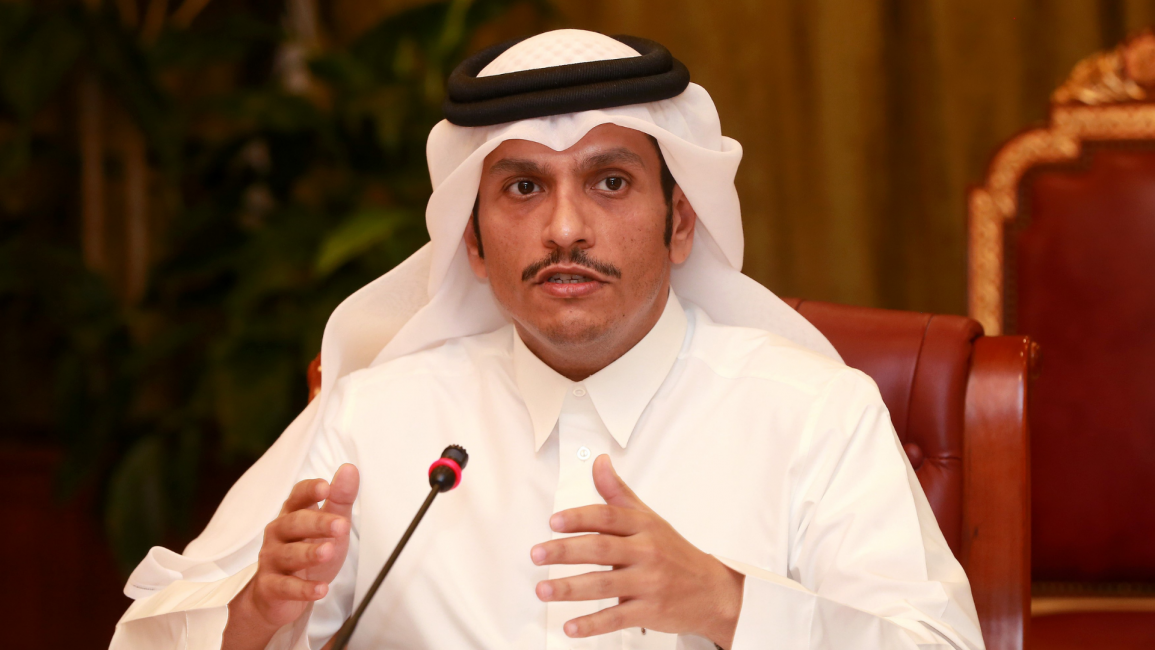Qatar FM visits Beirut to push for the formation of a new government
Qatari Foreign Minister Mohammed bin Abdulrahman Al-Thani arrived in Lebanon on Tuesday, where he will meet with Lebanese President Michel Aoun, as well as the prime minister-designate Saad Hariri, speaker of the Parliament, Nabih Berri and commander of the army, Joseph Aoun.
The minister is expected to discuss efforts to form a new government in Lebanon, which has been ruled by a caretaker government since the previous administration resigned in the wake of the 2020 Beirut port explosion. Since then, Lebanese politicians have been unable to reach a compromise to form a new government.
This is the fourth round of meetings between Qatari and Lebanese officials this year, with Qatar's top diplomat visiting Beirut in February and Hariri visiting Doha in the same month, as well as caretaker Prime Minister Hassan Diab going to Doha in April.
In each round of meetings, Doha has urged the formation of a new government in Lebanon, and has promised aid only after one is formed, similar to the demands of other international powers and donors.
Hours before the meeting between the Qatari foreign minister and Lebanese politicians, Diab made a renewed plea for aid from foreign powers, warning that Lebanon is on the precipice of a "social explosion." He also decried the linking of foreign aid with the formation of a new government, calling the condition a "threat to the lives of the Lebanese people."
In the past, Lebanon was a favoured destination for Gulf cash, with over 75 percent of all foreign direct investment in Lebanon between 2003 and 2015 coming from the Gulf. The picturesque coastal nation was also an ideal vacation spot for Gulf citizens looking for nightlife and natural landscapes they could not get in their own countries.
However, relations between Lebanon and much of the Gulf have soured in the last four years. Most of the Gulf, namely Saudi Arabia and the United Arab Emirates, view Lebanon as being an extension of Iran's political project due to Hezbollah's prominent role in the country’s politics. While sending money to a corrupt political class might be something the Gulf monarchies could stomach, lining the pockets of what it views as an Iranian proxy is intolerable.
For its part, many Lebanese view the Gulf states with displeasure after Saudi Arabia held then-prime minister Saad Hariri in Riyadh and forced him to resign. Upon returning to Beirut, Hariri revoked his resignation.
Doha has played a more active role in Lebanon than other Gulf states in the last few years, most recently buying over $500 of government bonds in summer of 2019. Last week, Doha also announced it would fund scholarships for students at the American University of Beirut and would reconstruct a hospital in Beirut damaged in the August 2020 explosion.
Unlike most other Gulf states, Qatar enjoys good relations with Iran and does not find Hezbollah’s presence in Lebanese politics as problematic as states like Saudi Arabia do.
Doha also has a history of facilitating political dialogue between Lebanon’s political blocs, most famously bringing its warring parties to Doha in 2008. The resulting Doha Agreement ended violent clashes in Beirut and formed a National Unity Government in which Hezbollah held a third of the seats.
In the previous two meetings with their Lebanese counterparts, Qatari officials said there were no plans to host Lebanese parties in Doha in order to form a government, but that Lebanese were "always welcome" in Doha.



